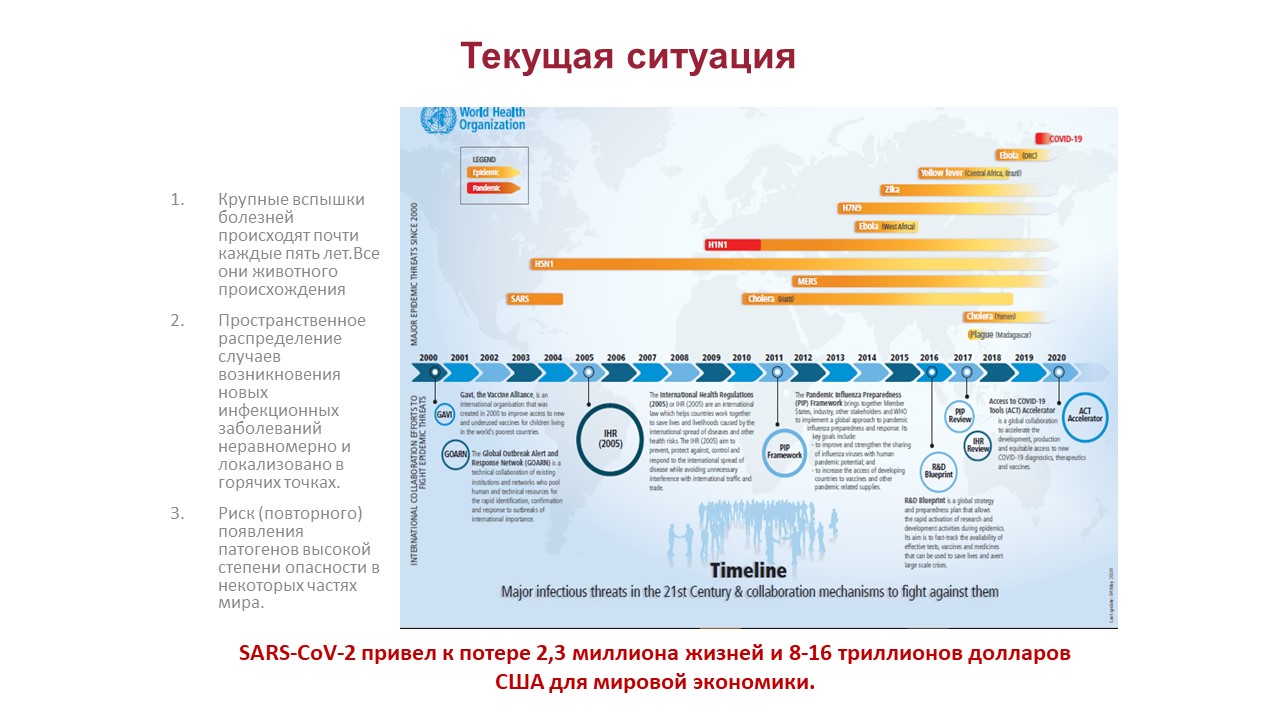



The relevance of the “One Health” approach is beyond doubt, considering the new reality, the COVID-19 pandemic. Modern realities require updating the curricula of veterinary faculties taking into account current and future challenges.
The OIE Sub-Regional Representation for Central Asia, together with the WHO Country Office in Kazakhstan, initiated an online roundtable to discuss the possibilities and prospects for introducing the “One Health” approach principles into the curricula of veterinary faculties. This initiative was positively received by the national veterinary services, the Ministry of Agriculture, representatives of the veterinary faculties.
An intersectoral and multidisciplinary approach to the control of zoonotic diseases, antimicrobial resistance, food safety, and biosafety requires the implementation of the “One Health” approach both in the educational programs of medical specialists and veterinarians. The listed challenges are caused by many factors, a significant part of which are outside the traditional functions and powers of one industry. None of the sectors involved in solving these issues can provide an effective response alone, so veterinarians must be able to build synergies with other sectors and systems for the public good.
“The “One Health” approach today is the only effective tool as a response to global challenges for the health of people, animals, and the environment. The current pandemic is clear evidence of the fact that the relationship between humans – animals –environment is evident and how this ultimately affects our lives”, noted Dr Mereke Taitubayev, Head of the OIE Sub-Regional Representation for Central Asia.
Dr Dmitry Morozov, Technical assistant of the OIE Representation for Central Asia, in his presentation on the harmonization of veterinary education at the international level, provided information on the role of the OIE in this process and the results of four global conferences on veterinary education, as well as introducing the OIE Recommendations on the Competencies of graduating veterinarians (‘Day 1 graduates’), the minimum Curriculum Guide for Veterinary Faculties and the OIE Twinning Projects. Particular attention was paid to the issues of accreditation of veterinary faculties in international associations (eg. EAEVE and AVMA). The possibility of using the OIE Terrestrial/Aquatic Animal Health Codes and the OIE Manual of Diagnostic Tests and Vaccines for Terrestrial Animals in the educational process at faculties to familiarize students, researchers, and faculty with international standards was discussed.
Tackling antimicrobial resistance is a prime example of the need for the “One Health” approach to forming effective and coordinated policies to maintain antimicrobial efficacy. “The WHO Global Plan is to raise awareness and improve understanding of antimicrobial resistance issues through effective communication, education, and training,” concluded Yerbol Spataev, WHO’s “One Health” Advisor.
Margarita Graf, an expert on educational methodology, presented the concept of introducing the educational course “One Health” in the process of training veterinary specialists. The concept assumes the introduction of the principles of the “One Health” approach in the specialty of veterinary sanitation and veterinary medicine at the bachelor’s and master’s degrees. The purpose of the programs is to master the theoretical and practical foundations for the implementation of the principles of the “One Health” in the veterinary service, the development of skills for organizing inter-sectoral interaction to ensure biological and food safety, prevention, and elimination of infectious animal diseases.
The expert presented the draft module plan for each specialization and level for discussion. “This is a framework plan that must be implemented taking into account the current curriculum and the needs of each veterinary faculty,” concluded Margarita Graf.
It should be noted that the roundtable participants noted that some elements of the “One Health” approach have already been introduced into the educational process, but this topic requires subsequent discussion and direct implementation in order to comply with generally accepted international norms and requirements for the “One Health” approach.





